Over the past 24 hours, the University of Massachusetts side of X/Twitter has been lit ablaze with fierce debate regarding the future of the university’s athletic department.
While threads and paragraphs surrounding possible conference realignment began Sunday night, debates were further flamed with Monday morning’s announcement that Delaware will be joining Conference USA in all sports beginning in 2025-26. For many UMass fans, the CUSA along with the Mid-American Conference are the two most likely destinations for their school to consider if it opted to move away from its current situation.
That situation is what fans have known for eight years now: football as an FBS independent, and apart from a couple outliers, other sports in the Atlantic 10.
It’s a situation that isn’t perfect, but neither is the school. UMass does not meet the modern-day criteria that conferences look at when considering new members. The university is not near a major market and it has no recent success in the NCAA’s two main revenue sports (football and men’s basketball). With that in mind, some Minutemen fans have asked why a conference would even consider the school.
Well, it’s a turbulent time in college athletics, and conferences (some more than others) are looking for new footprints. In UMass, a conference can gain a flagship university with a large student body and an alumni base spread across not just the Northeast, but the world. The men’s basketball program hasn’t been at its strongest recently, but it will give a boost to the talent level in the CUSA or MAC. The football program can promise a stronger commitment to its new conference thanks to television deals and a burgeoning NIL collective.
The pros of moving conferences are there, but if I was the director of athletics, Ryan Bamford, I would hold strong and keep my athletic teams where they are right now.
Let’s focus on the program that should drive the school’s decision: UMass football. Despite plenty of talk to the contrary, I believe that there’s still a viable path to success as an FBS independent in football, even in 2023. Has UMass struggled as an independent? Yes, they’ve struggled mightily. However, joining a conference will not magically solve those on-field problems, nor will they give UMass anything more than a small bump in the program’s odds of success. To succeed in college football today, the number one thing a school needs to do is increase its resources. Nowadays, fans can directly contribute to those resources. I promise that donating to the Midnight Ride Collective or giving money to the Gridiron Club will help the program far more than a conference membership will.
Let’s look at the Liberty Flames as an example; the program moved up from FCS to FBS as an independent in 2018. The school spent $196 million on athletic facilities in the seven years preceding the move, including a $29.2 million indoor football facility. In its third year (all three of which were spent as an independent) Liberty went 10-1 and finished 17th in the AP Poll.
Past Liberty, the UConn Huskies made a bowl game in its second year as an independent, something they only did once during seven years in the American Athletic Conference.
Are these athletic departments comparable to the ones in Amherst? No, not at the moment. However, the point remains: there is no cap on success as an independent in NCAA football. If the resources and support are there, a program can rise through the FBS ranks just as it would if it had a conference to its name.
The supporters for conference realignment point to television deals as a reason for why the Minutemen should leave independence. It’s true that joining a conference will likely give a sizable bump to the football program’s revenue, but that money is not groundbreaking. CUSA schools make roughly $800,000 annually through their television deal. MAC schools make roughly $600,000 annually. UConn football, one of four FBS independents, makes $500,000 annually on their deal with CBS Sports.
Money will be spread throughout the entire athletic department and its impact on the football program doesn’t do nearly enough to guarantee success.
Supporters of realignment also argue that UMass football can play a more forgiving schedule, one that’s less reliant on buy games. That’s no sure thing either, as it all depends on an athletic department’s financial situation. Kent State, a MAC program, plays three buy games next season. CUSA’s Louisiana Tech plays two, the same amount that UMass played this season as an independent.
And then there’s the argument from a basketball perspective. It’s been noted by many, even those that think UMass should stay put, that the A-10 is nothing like it was a decade ago. A conference that got six NCAA tournament bids in 2014 is now trending towards two straight one-bid seasons. Am I saying that the A-10 is going to get back to its six-bid days? No, not at all. But I do think that the conference was due for a couple down seasons, and that its rebound is happening sooner rather than later.
In the A-10, you have a conference that broke an 18-year streak last season of sending multiple men’s teams to the NCAA tournament. That’s an impressive streak for a non-power six conference to boast. Even in today’s unstable environment of college athletics, A-10 athletic departments have largely made the right moves when it comes to coaching hires and overall commitments to their men’s basketball programs. I could eat my words here, but I truly believe that within two seasons, the A-10 will start sending multiple teams to the tournament yearly again.
Look at the Mountain West. Between 2015-16 and 2017-18, a regular multi-bid league got just four tournament bids in three years. It’s now sent four teams to March Madness each of the past two years. Conferences, non-power ones especially, ebb and flow, and the A-10 was long-past due for some regression.
With that being said, I know men’s basketball doesn’t drive realignment moves (unless you’re Gonzaga). It’s football that does. I see the benefits of UMass joining a conference. They finally get schedule stability, they get more television money and as of right now, they don’t get that big of a drop-off in competition when it comes to non-revenue sports, whether they’re in the CUSA or the MAC.
Again, if I was Bamford and I was forced to put UMass athletics in one of the two conferences, I would pick the CUSA. Despite there being more travel expenses, the CUSA’s been consistently better this season at both football and men’s basketball than the MAC. CUSA men’s basketball is still a one-bid league in March, but if you have the season of a lifetime, there’s at least a better chance of securing an at-large bid there than in the other conference.
However, none of the benefits to joining a conference I mentioned above will guarantee that the Minutemen’s athletic department will reach even slightly loftier goals. Continued investment in teams, through boosters and NIL investments, have the strongest correlation with success in the present day for FBS programs.
Even if they have a conference to its name, without significant financial commitments from both the athletic department and fans, UMass’ football team–and other athletic programs–will fail to reach new heights.
Dean Wendel can be reached at [email protected] and followed on Twitter @DeanWende1.















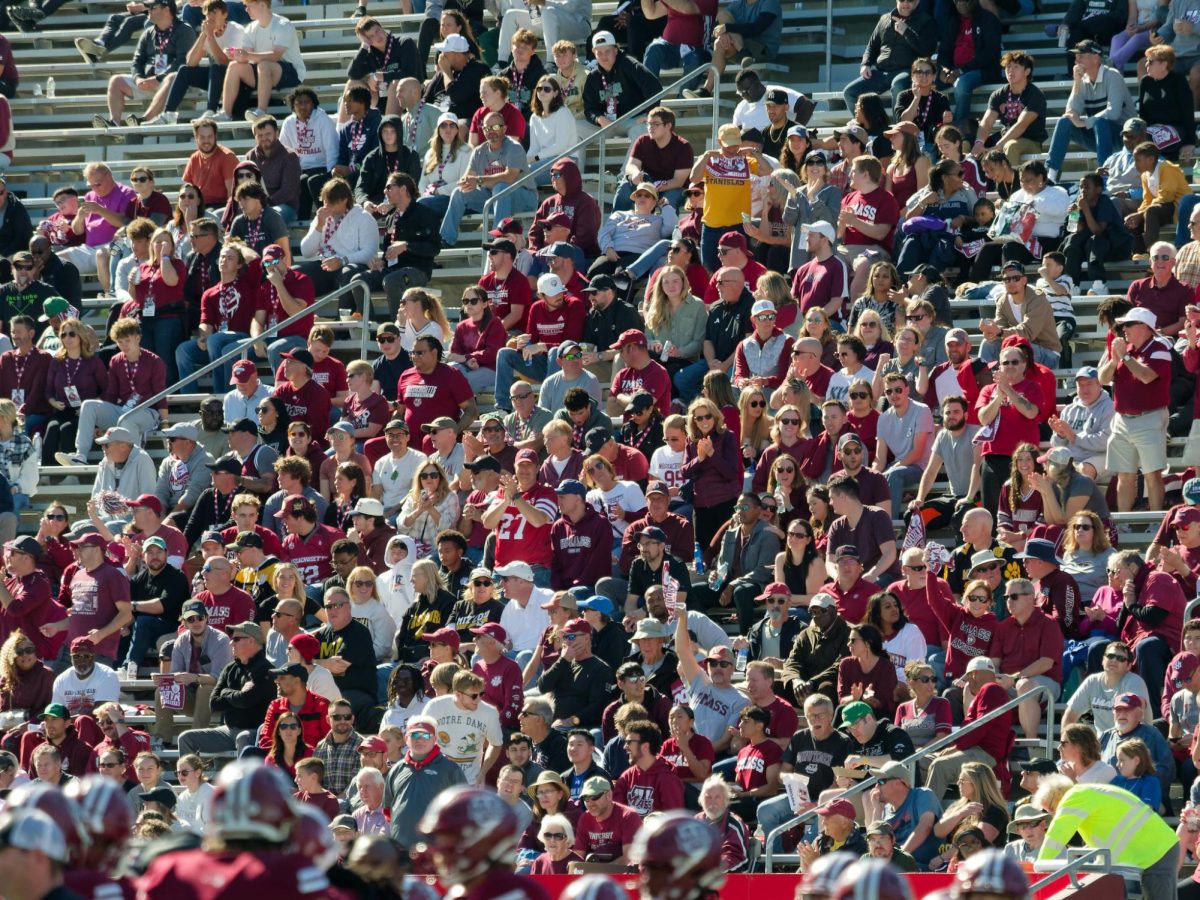
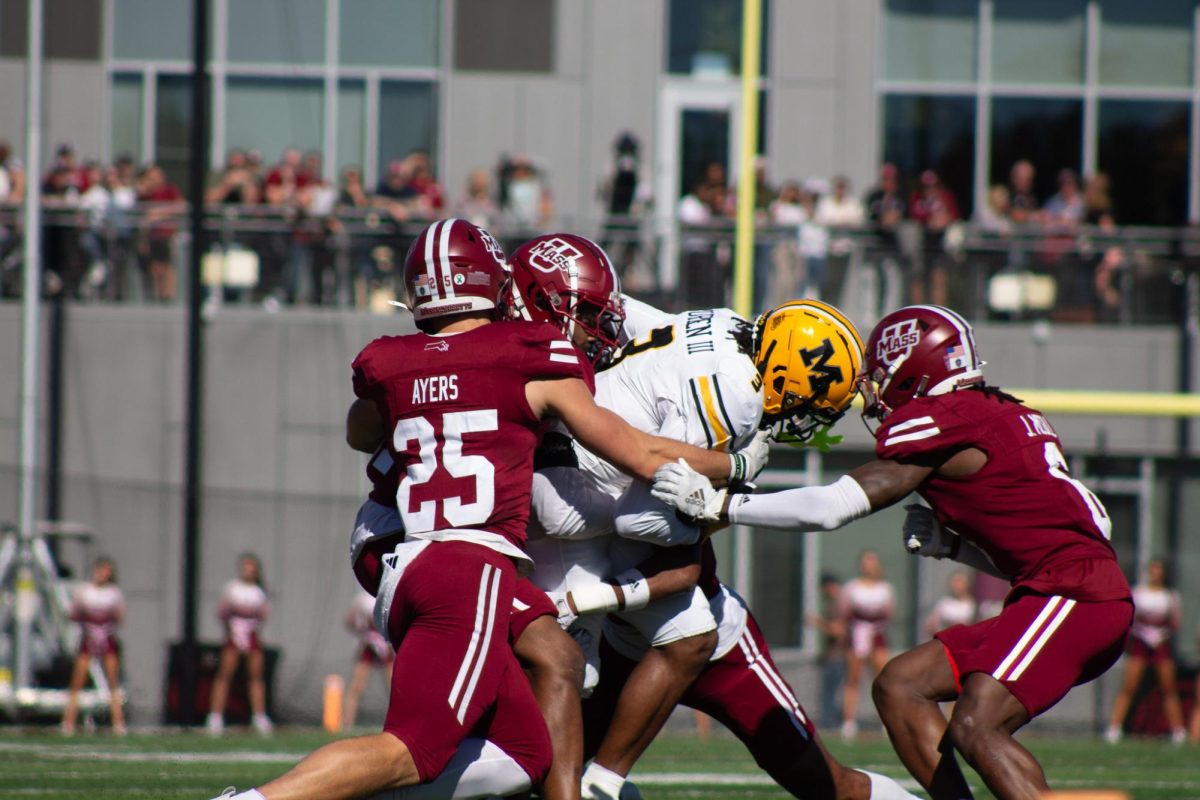
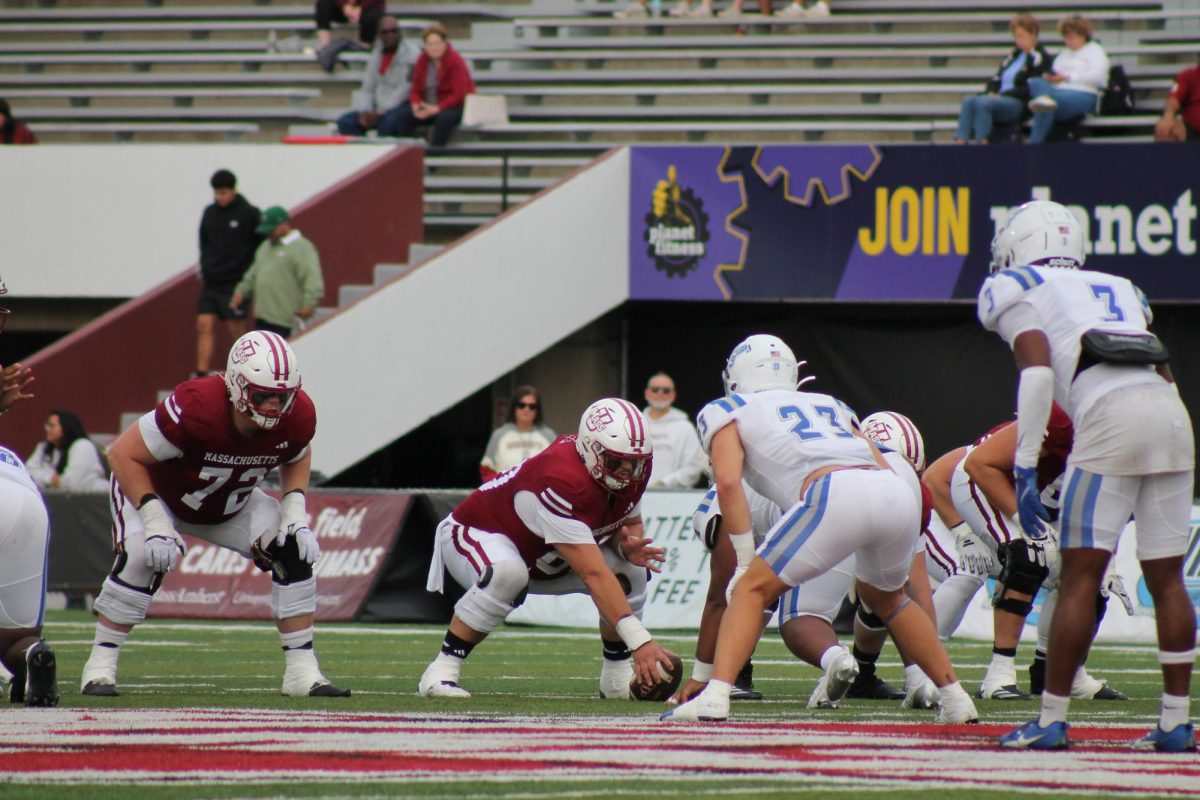
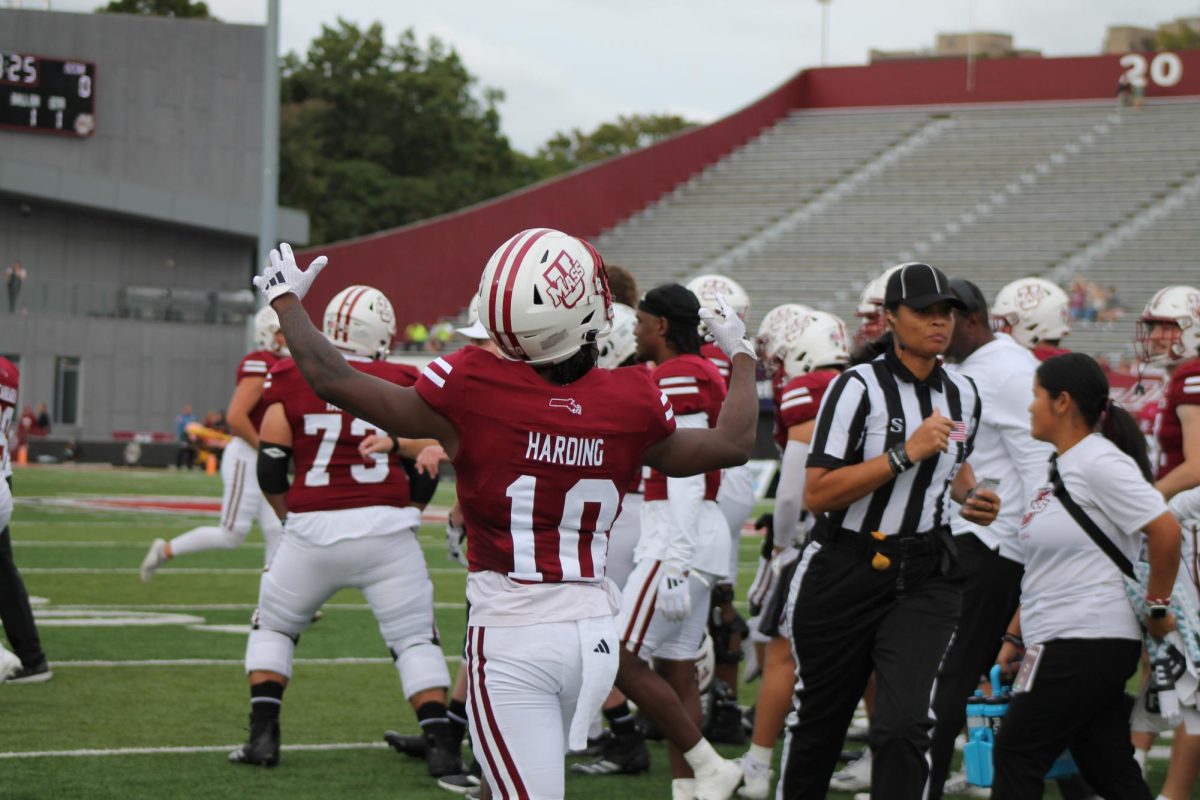
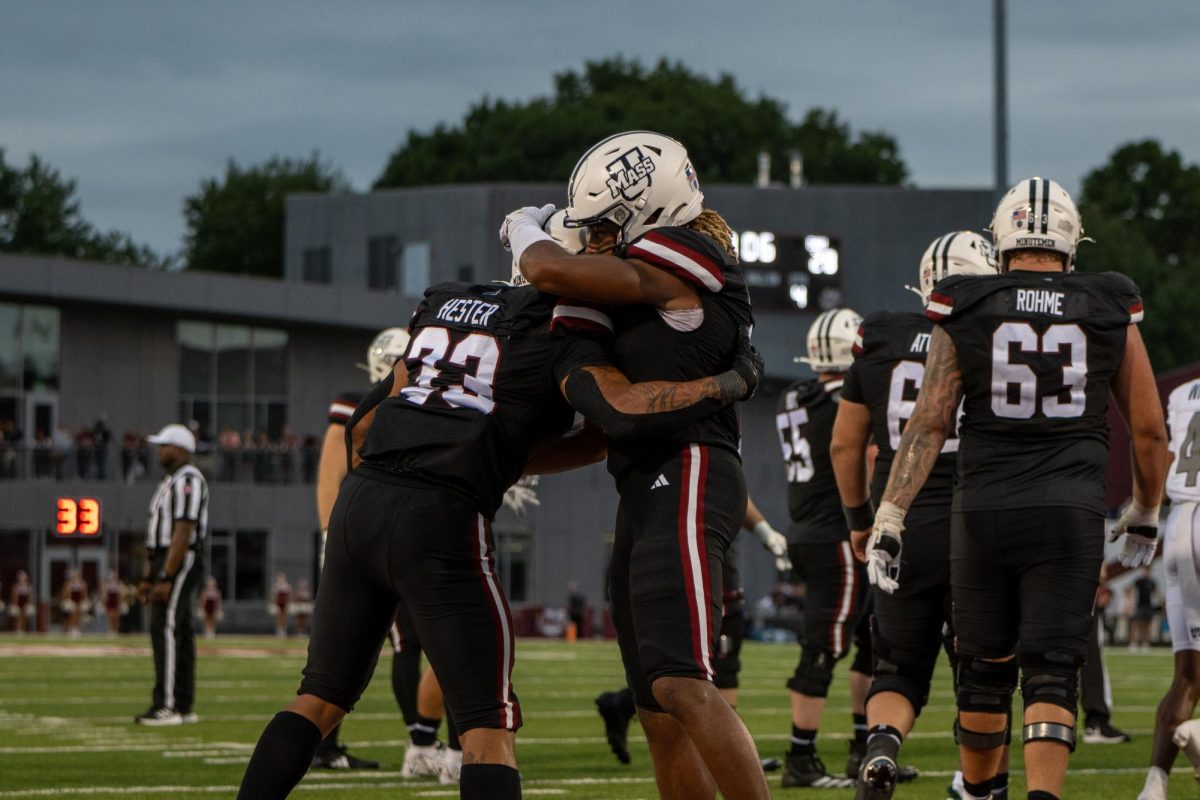
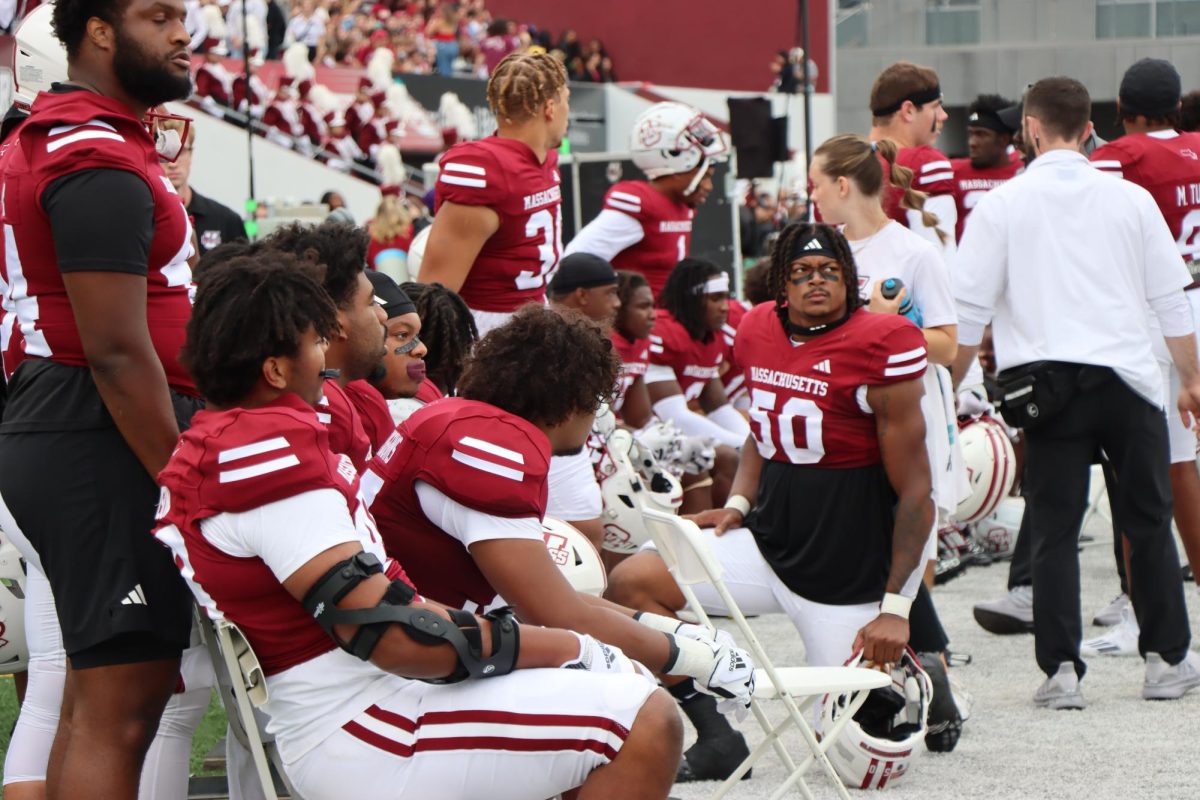
Mort Cohen • Nov 28, 2023 at 5:55 pm
Good article. Thank you.
Brian Farrington • Nov 28, 2023 at 5:08 pm
If UMASS can’t get into a conference for football, maybe the option no one is talking about is to drop football altogether.
Use some of the dollars to add a Women’s Hockey team to Hockey East instead.
Brian Farrington
Class of 1974
Jim Campasano • Nov 29, 2023 at 7:24 am
There is zero evidence of competence regarding football. Drop it.